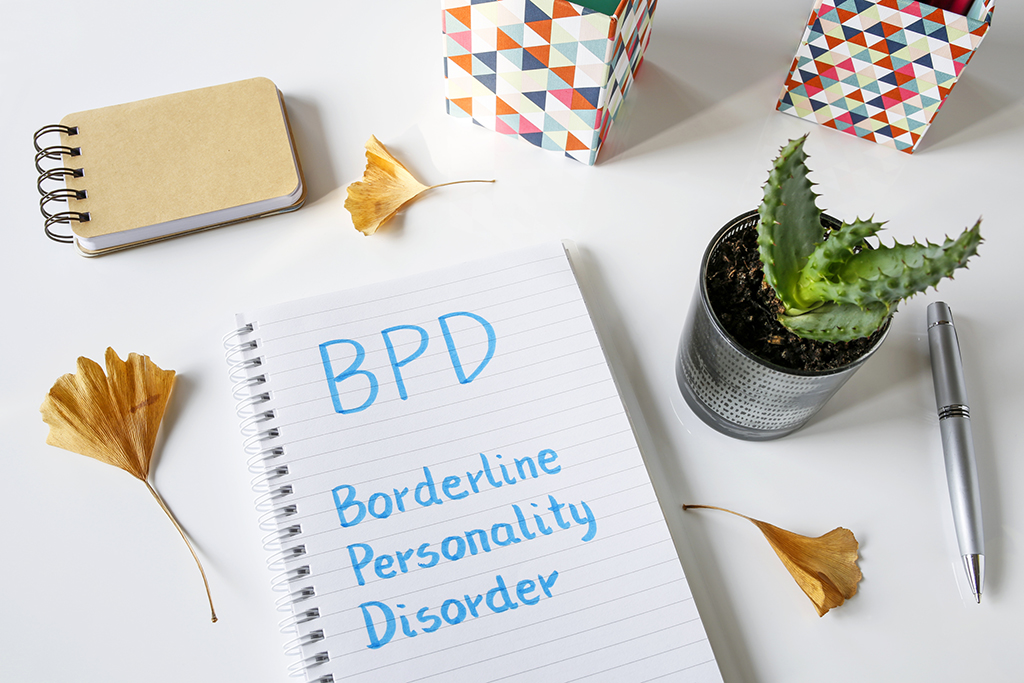Borderline personality disorder (BPD) is a mental disorder characterized by impulsive behaviors and emotional instability. BPD is included in the Social Security Administration’s Bluebook under the Mental Disorder listing 12.08. The Bluebook contains more than 100 disabling medical conditions that can qualify individuals for Social Security Disability (SSD) benefits. The Social Security Administration defines personality disorders like BPD as being “characterized by enduring, inflexible, maladaptive, and pervasive patterns of behavior.
Eligibility for SSD benefits based on a diagnosis of borderline personality disorder is not automatic. The Social Security Administration has specific criteria, as outlined in the Bluebook, applicants must meet to qualify for SSD benefits. To learn more, watch this short video.
What is Borderline Personality Disorder?
Borderline personality disorder affects a person’s feelings about themselves, which in turn affects how they feel about, and relate to, others. People with BPD often have negative images of themselves, have a difficult time managing their emotions, and trouble maintaining relationships This inability to interact appropriately with others can push friends and family away, reinforcing the person’s feelings of negative self-worth and causing them to lash out.
The exact cause of BPD is unknown. Genetics may play a role, and people with a family history of BPD are at an increased risk of developing the disorder. Brain abnormalities, such as in the areas that regulate emotions, impulsivity, and aggression, may also be a factor, as may environmental factors, such as a history of child abuse or neglect.
Qualifying for SSD Benefits with Borderline Personality Disorder
Because people with borderline personality disorder often have a difficult time controlling their emotions and experience drastic personality changes over short periods, it can negatively interfere with their ability to function effectively and properly in the workplace. For example, if BPD causes you to react angrily and lash out when being told what to, that could make it difficult to take orders from your superiors. Or if you have trouble interacting with others appropriately, that could be a problem if your job is in customer service or some other role, such as a receptionist, that requires frequent interaction with the public.
But as with any disability, a diagnosis alone isn’t enough to qualify for social security disability benefits; some people with BPD can manage the disorder with a combination of medication and/or therapy. To qualify for social security disability benefits with a diagnosis of borderline personality disorder, it must interfere with your ability to work, and that interference must be expected to last a year or more.
As part of your SSD application you will be required to provide medical evidence to support your BPD diagnosis and how it impacts your ability to work. Medical evidence may include information from treating physicians, specialists, psychiatrists, psychologists, or other medical sources. The more information your file contains about your diagnosis and its impact on your ability to work, the greater the chances that your application is approved. When evaluating your file, the Social Security Administration will be looking for information regarding the following:
- Symptoms;
- Clinical findings, such as the results of mental status exams, clinical interviews, psychiatric or psychological rating scales, and/or measures of adaptive functioning
- Psychological testing;
- Any laboratory findings, such as MRIs or CT scans;
- Type, dosage, and effects of any medications you have taken, or are currently taking, including side effects and any limits they impose on your ability to function;
- Frequency, duration, and effects of any therapy you have received, or are currently receiving;
- Course of treatment, and;
- Expected duration of signs/symptoms and their effects on your functioning, both currently and in the future.
Specifically, the Social Security Administration will be looking at your medical records to determine if there is a pervasive pattern of at least one or more of the following behaviors:
- Distrust and suspicion of others;
- Detachment from social relationships
- Disregard for, and violation of the rights of, others;
- Instability of interpersonal relationships;
- Excessive emotionality and attention-seeking;
- Feelings of inadequacy;
- Excessive need to be cared for;
- Preoccupation with maintaining perfection and order, or;
- Recurrent impulsive, aggressive behavioral outbursts.
In addition to proving that you exhibit at least one or more of the above, your medical file must also show that your borderline personality disorder interferes with your mental functioning, as well as how it impacts your ability to function independently, appropriately, and effectively on a sustained basis, as it relates to your ability to work. That means the impact must be more than occasional. Mental functioning looks at the applicant’s ability to:
- Understand, remember, or apply information;
- Interact with others;
- Concentrate, persist, or maintain pace, and/or;
- Adapt or manage yourself
To meet this criterion, the limitation in mental functioning must be extreme in one area, or a marked limitation in at least two.
If you are unable to meet these criteria – for example, your borderline personality disorder affects all four of the mental functioning categories, but the limitation is not marked or extreme – it is still possible to qualify for SSD benefits. In this case, you must show that your BPD interferes with your ability to work in any type of job. In these cases, the Social Security Administration will conduct a residual functional capacity evaluation that will consider your age, work history, experience, and what job-related tasks you can do despite the diagnosis.
Borderline personality disorder often, but not always, co-exists with other mental health disorders, such as depression, anxiety, bipolar disorder, post-traumatic stress, or other personality disorders. If you have been diagnosed with any other mental health disorder, even if BPD has been identified as the primary indicator, it is important to let your social security disability attorney know. Providing the Social Security Administration with the full picture of your health and how your mental health disorders affect your ability to work increases the chances that your application will be approved.
If you or someone you know requires legal assistance or representation with your social security disability application, do not hesitate to contact the attorneys of The Good Law Group!









